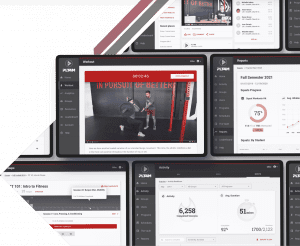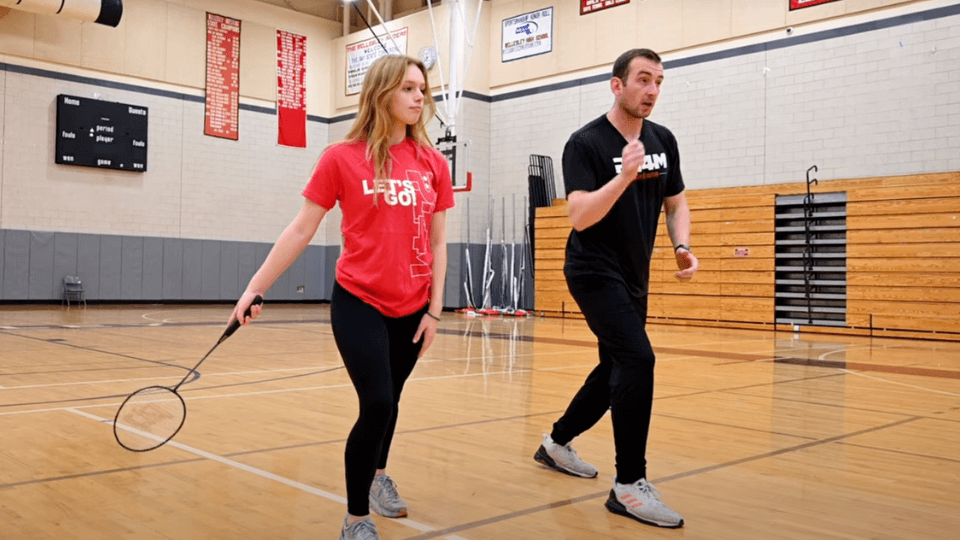Athletic performance is about more than just who is the most physically prepared for competition. Mental preparation is a crucial component for athletic success. Incorporating high school athlete mental training into your athletic program can take your team to the next level. This article explores how high school athlete mental training is more than just one-off conversations about mental toughness. Instead, it is a total picture to develop skills and strategies for better mental health and increased athletic performance.
Importance of High School Athlete Mental Training
Imagine it is the 4th quarter or final moment of a close game. The crowd is loud, the last play didn’t go your way, and the game is on the line. What mental preparation have your student-athletes done to prepare for this moment?
Yes, you spent time at practice and in the weight room to be physically prepared. And hopefully, all that hard work is going to pay off. But high school athlete mental training is what can make or break these big moments.
And while high school athlete mental training is undoubtedly crucial for those big moments, it also plays a critical role in all of the little moments leading up to that final play. Mental skills training impacts everything, like having a positive mindset at practice, goal setting for a long season, and managing time as a high school student-athlete.
And no matter the level of your athletic program, you are still working with high school athletes. Some of your elite level athletes might appear to be gifted with innate mental strength or mental toughness. But it is important to remember that regardless of their overall performance on the field, they are still just 14-18 year-olds that would benefit from mental coaching and mental strategies.
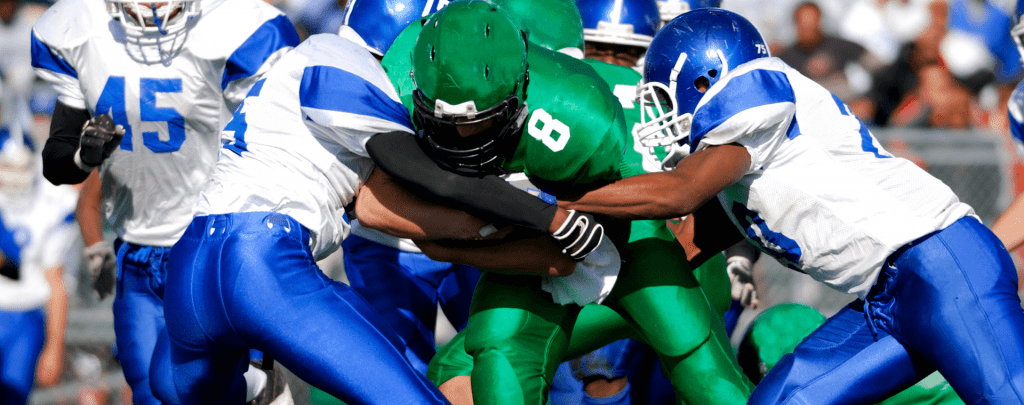
Our Obsession With Mental Toughness in Sport
Many people immediately think about mental toughness when we talk about high school athlete mental training. But what is mental toughness in sport? While there are countless definitions of mental toughness, Trine Edu has a helpful all-encompassing summary of the term,
“Mental toughness refers to an athlete’s ability to persist in the face of challenges, mistakes, and failure.”
Because the word toughness elicits images of mental strength and perseverance, many coaches focus on developing mental toughness in athletes through grueling workouts and tough practice sessions.
And while many high school athletes won’t enjoy these sessions in the moment, they still walk away with various benefits. Individually they know they can persist through challenges, mistakes, and failures. And these sessions can help to build team camaraderie by working through adverse situations.
Although these mental toughness moments are part of high school athlete mental training, it is not the complete picture. Many coaches will obsess over mental toughness training but lose out on the other aspects of mental training that can help student-athletes perform and succeed in competitive sports.
This in no way means we should stop preaching and teaching the power of mentally tough athletes. Instead, let’s pair our focus on mentally tough athletes with other mental skills training that will improve the total mental game.
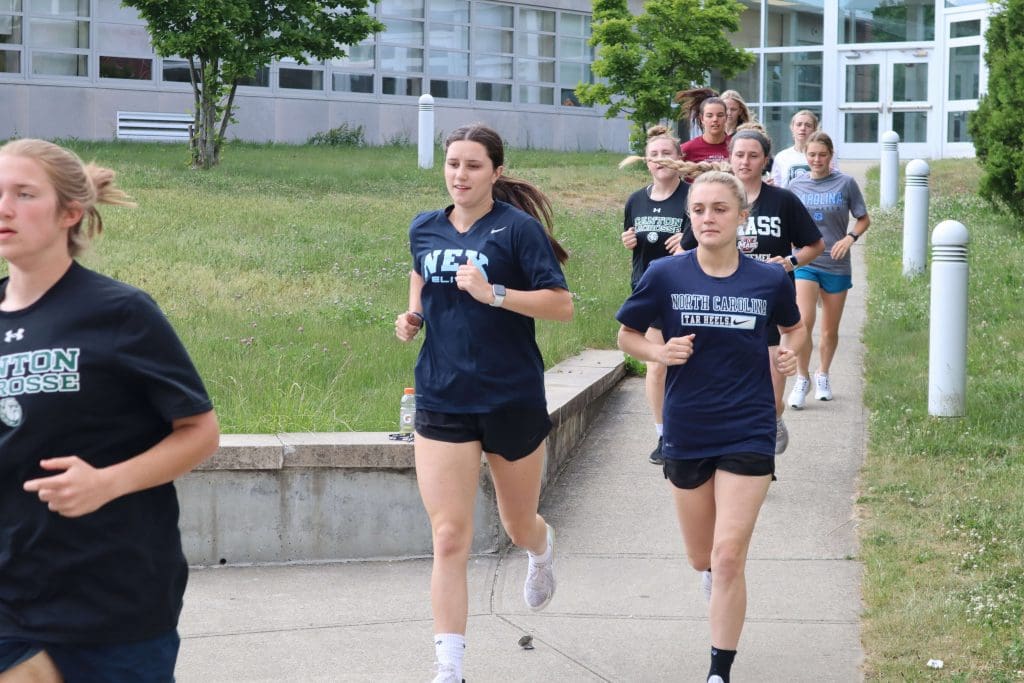
Other Elements of High School Athlete Mental Training
What are the different elements and mental skills for high school student athletes outside of mental toughness? The Ohio Center for Sport Psychology outlines 9 skills for athletes:
Choose and maintain a positive attitude.
Maintain a high level of self-motivation.
Set high, realistic goals.
Deal effectively with people.
Use positive self-talk.
Use positive mental imagery.
Manage anxiety effectively.
Manage their emotions effectively.
Maintain concentration.
Many of these skills can happen organically throughout a season. For example, your team might not be motivated after losing a few straight games. You could emphasize self-motivation and positive self-talk at practice as you go through a losing streak.
Another example might be you notice one of your best athletes struggling with competition anxiety. While they have the makings to be an elite athlete, the athlete struggles when the moment gets too big. Here you might give them more individualized mental strategies to learn to cope with competition anxiety and maximize athletic performance.
But outside many organic moments that will occur throughout your practices and games, there are also more targeted ways you can tap into mental training for high school level athletes.
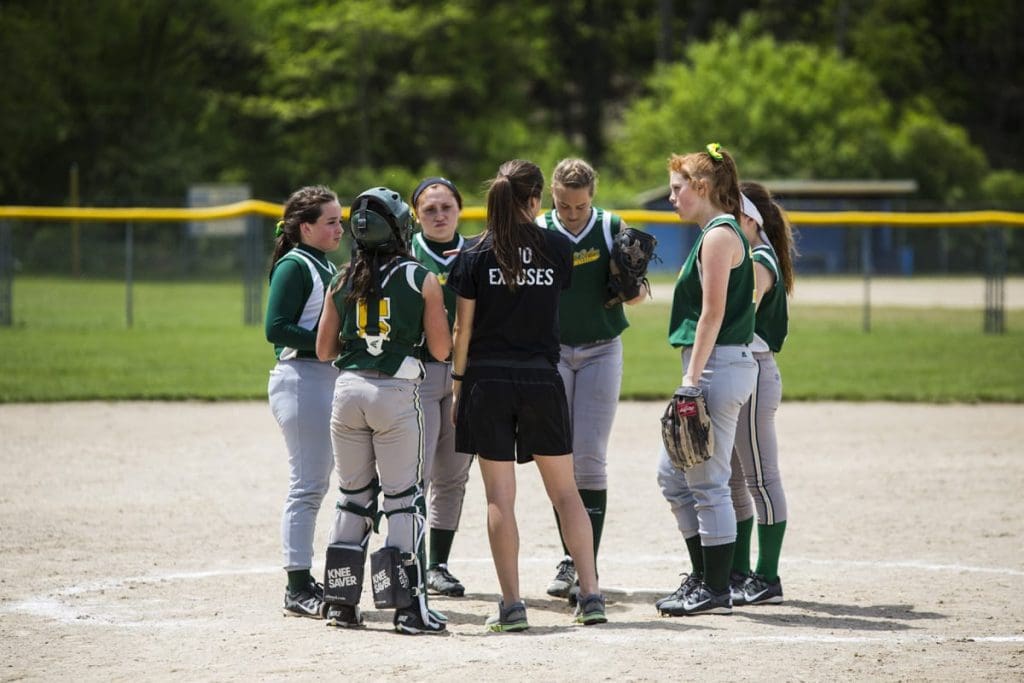
Ready to Learn More?
Schedule a free 10 minute consultation to see how the PLT4M system can help save you time, and empower student learning!
5 Examples of Mental Training Exercises
Here are five examples of targeted high school athlete mental training exercises that can be used with student-athletes. Some of these exercises and activities might feel silly or strange for high school athletes, so pick and choose, keeping your athletic program and audience in mind. But if we can work to normalize mental health and mental training exercises, all of these sessions can be helpful for your high school student-athletes.
1) Visualization:
One of the most popular mental training exercises is visualization. It is also among the most popular mental training exercises for elite and professional athletes. And for a good reason!
We can intentionally use our mind and imagination to wire the neural networks in our brains. Visualization allows us to do this before we even take on a task.
Visualization allows you to imagine and picture the project you want to create or even the play you want to do in competition. We are using our thoughts to create these neural pathways to do this before we actually do them. Through stillness, we can imagine and picture ourselves doing great things.
2) Breathing Exercises
Many student-athletes will experience feelings of stress and anxiety both before and during competition. Breathing exercises are an excellent strategy to calm nerves and refocus on the task at hand.
While there are various breathing exercises to choose from, below is an example that can help with physical and mental performance.
This pursed lip breathing exercise consists of the following:
2 second inhale (Nostril).
Purse your lips like you are going to blow out candles.
4 second exhale. (Mouth)
3) Mindfulness: Labeling Thoughts
Having a positive mindset is not as easy as just “thinking positive” Many student-athletes will have negative thoughts about athletic performance and everyday life that can interfere with success. Mindfulness sessions can help students learn how to navigate these thoughts constructively. Of course, we are all bound to have negative thoughts, but how we interact with them is most important.
The Conveyor Belt Of Thoughts: Think of your brain and thoughts as a conveyor belt. All your thoughts go by on a grocery store conveyor belt, but now you only pick out the ones you want or have the energy to focus on. You have the choice to decide what thoughts you want to stick with. It gives us a choice.
The STOP Method: A helpful way to label and deal thoughts as they arise.
S- Stop and still your body
T- Take three deep breaths
O- Observe and notice sounds around you
P- Proceed
8 Free Mindfulness Sessions For Your Team
Want to introduce mindfulness to your team? Download our PDF and get access to 8 follow-along sessions with PLT4M’s mindfulness team.
4) Communication, Self Talk & Affirmations:
High school student-athletes can be really hard on themselves! Self talk and affirmations can be a helpful way to change the conversation in young athletes minds. It can help to build confidence and motivation.
Here is another mindfulness session that focuses on communication. And while many of the skills practiced in this session focus on how we communicate with others, they also are beneficial to think about how we talk to ourselves.
To help with your practice, a helpful acronym to use is THINK. When we get ready to talk, we can come back to this acronym to ask ourselves if what we are going to say fits the THINK model.
T: True
H: Helpful
I: Inspiring
N: Necessary
K: Kind
By pausing it helps us address how we are feeling before we talk. If we notice that our words don’t fit the THINK acronym, we are given space to find calm before speaking. In giving us space, we can be calm and try to use words and communication that will fit the THINK model.
5) Goal Setting:
Yes, goal setting is a mental training exercise! It takes thought and planning to not only set goals, but then work to achieve them. We don’t have a video for goal setting, but we suggest using the SMART goals strategy to help focus on goals.
Goal setting is a skill that takes practice. Often, people find themselves setting bigger goals that can take time to achieve. And while dreaming big with goals is good, setting realistic goals with structure can help to make better long-term progress. SMART goals help to do that.
SMART goals have been around since the 1980s. First introduced by George Doran, Arthur Miller, and James Cunningham, SMART goals outlined a mnemonic acronym to help with goal setting.
Specific
Measurable
Attainable
Relevant
Time-based

Key Takeaways on High School Athlete Mental Training
We spend so much time as athletic programs focusing on athletic performance. We dedicate countless hours to the weight room, practices, nutrition for high school athletes, and more.
But all of our time and energy is wasted, if our athletes don’t have the mental strength to match. The best athletes are physically strong and skilled and equipped with the mental skills to navigate challenges, risks, failures, and successes.
To unlock the true potential of our student-athletes, high school athlete mental training needs to be part of your program. And while the occasional conversation about mental toughness is a good start, the best coaches are tapping into the abundance of resources to help with the mental game that impacts athletic performance.
